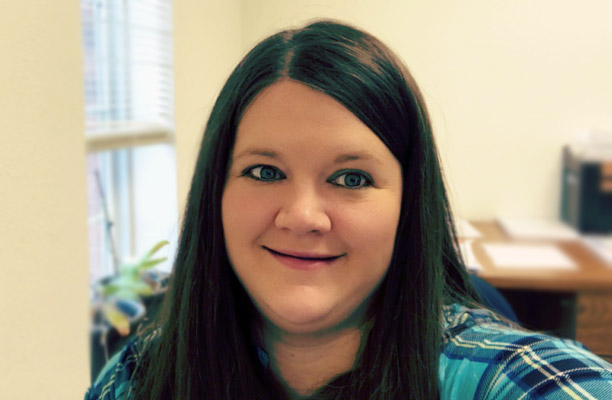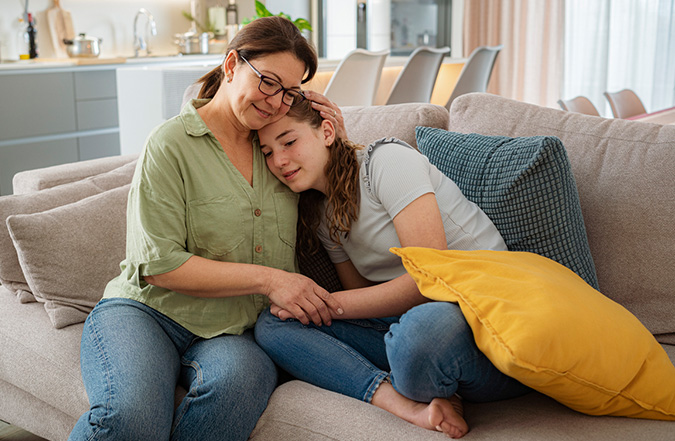
Beth Volk has been working with children and families as a placement worker in Illinois for 13 years. A mother she works with suggested that we feature Beth as an Outstanding Caseworker.
“Beth makes us feel heard and supported. She consistently provides ideas when we feel defeated, communicates frequently, and knows when we need extra support. She always makes sure we have the necessary paperwork, keeps us updated on our children’s case, supports our decisions, and advocates for us whenever possible. We consider Beth to be part of our family and feel very blessed to have her.”
Were you surprised that this family nominated you?
Yes, because I think they are the amazing ones! They should be recognized as “outstanding foster parents.” They make my job easier by always coming up with new ways to help the children they’re fostering. A lot of what I am doing is being there to listen to them vent when they need to and finding ways to support their efforts to help them—and their kids—succeed.
What is one of the biggest things you’ve learned through your work?
Empathy.
I fundamentally believe that most people are not bad people. And I’m pretty sure that nobody wakes up in the morning and thinks, “I am going to abuse my children or use drugs in front of them today.” Unfortunately, that is the way that a lot of the parents I work with were raised. It is a vicious cycle. I try to understand that and treat them—and everyone—with as much compassion and respect as I can.
Are there decisions that you would make differently today than you did a dozen years ago?
Looking back, I was pretty naïve when I started this job. I never even knew anyone who was divorced! Now I have a much greater understanding of the issues affecting our families—like that people use drugs to self-medicate mental illnesses.
I have at least one case early in my career where I look back think I made an error. A couple was adopting four kids they had been fostering, and they were struggling with the behavior of the oldest boy. I believed that being adopted would make some of his problems dissipate, because he wouldn’t have the constant reminder of his birth parents and that loss.
Unfortunately, it didn’t work that way. In retrospect, I think that he needed more intense therapies. It was harder to get services back then, but I should have pushed for more—and I should not have viewed his birth parents as the source of his problems. I now understand how important it can be to preserve those relationships.
Do you generally advocate for children to maintain contact with their birth families?
Yes, when it is safe for the children. I think it works best when kids see that their birth parents and foster parents can get along and have a good working relationship.
I just sent a kid home in December, and before I did, his birth parents used to joke with me that they wanted their son’s foster parents to take them home too! And even though he’s back with his birth family, he still see his foster parents—and his foster grandparents.
What advice would you offer caseworkers who are new to the profession?
Well, there are the basic principles that we should all live by: Be honest. Treat other people the way you want to be treated.
The most important thing for new workers to know is that the key to our job is organization. You’ll never get it all done if you don’t have a system.
Also, no matter what, the first six months on the job are going to be very stressful. But it does get better! In the beginning—and always—lean on your coworkers. You can’t do it by yourself.
Lastly, when you go home at the end of the day, turn the job off. If you don’t, you won’t make it.


